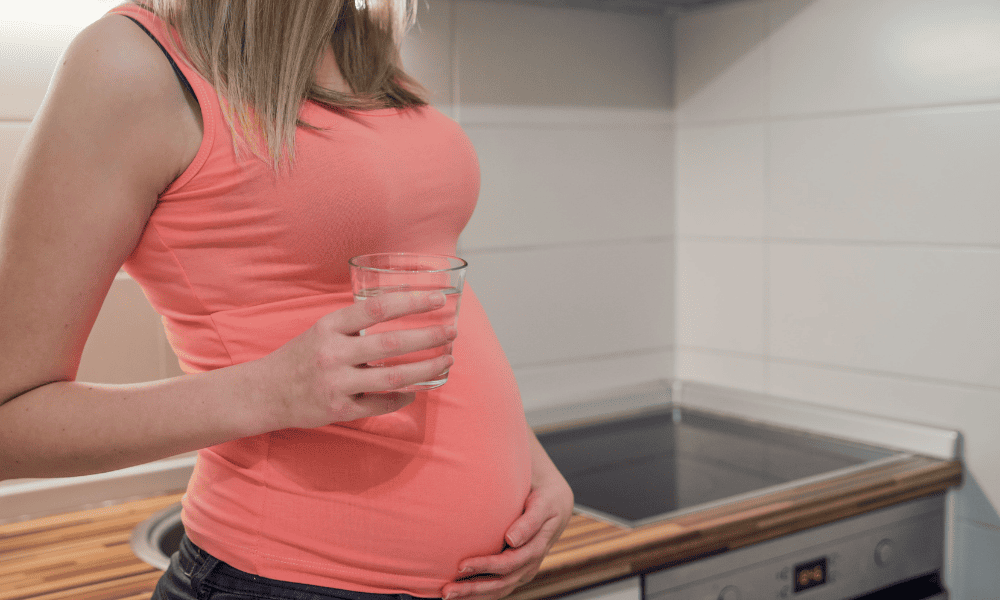
If you’re pregnant, you know hydration matters more than ever. Your blood volume increases, hormones shift, and cravings change. Liquid IV has become a popular powdered electrolyte drink mix. It promises improved hydration, energy boosts, and even relief from nausea. But is it truly safe for pregnancy? This article offers clear, expert-backed answers. You’ll get science-based facts, real-world insights, and practical tips designed to support your journey as an expecting mother.
Table of Contents
Can I Safely Use Liquid IV While Pregnant?
What is Liquid IV?
Liquid IV is a powdered hydration formula. It blends sodium, potassium, glucose, and vitamins into a single stick. When mixed with water, it creates a drink aimed at restoring fluid and electrolyte balance. People use it after exercise, during travel, or when feeling run down.
Is it Approved for Pregnant Women?
No product is officially approved or disapproved for pregnancy unless reviewed by regulators. Liquid IV’s manufacturer lists it as suitable for adults without pregnancy-specific claims. Most healthcare experts treat it like any over-the-counter drink mix. They emphasize that it shouldn’t replace water but can safely supplement hydration when used properly.
Compared to sports drinks or coconut water, Liquid IV offers a stronger electrolyte profile. It aligns closely with oral rehydration solutions recommended by medical authorities like the World Health Organization.
Comparative Table – Liquid IV vs. Coconut Water vs. Sports Drinks
| Feature | Liquid IV | Coconut Water | Sports Drinks |
| Sodium (mg/serving) | ~500 mg | ~65 mg | ~270–450 mg |
| Sugar (g/serving) | ~11 g | ~6 g | ~21–34 g |
| Additives/Flavorings | Yes (varies by flavor) | No (natural) | Yes (colorants, sweeteners) |
| Electrolyte Variety | Broad (Na, K, Mg, Ca) | Primarily potassium | Sodium, potassium |
| Pregnancy Suitability | Safe in moderation | Generally safe | Use with caution (sugar, dyes) |
Use this table to decide what’s best for your lifestyle and health needs. Let me know if you’d like this turned into a printable guide!
Why Do Pregnant Women Need Electrolyte Drinks?

How Pregnancy Affects Hydration
Pregnancy increases your blood volume by nearly 50%. This extra fluid helps support your growing baby and placenta. But it also raises demands on your body’s electrolyte balance. Symptoms like morning sickness, swelling, and leg cramps are often linked to fluctuations in fluid and minerals.
What Electrolytes Actually Do
- Sodium and potassium control fluid balance and blood pressure.
- Magnesium supports muscle function and can help ease cramps.
- These minerals also help your nerves, heart, and baby’s growth.
When fluid and electrolyte levels drop, your body struggles to keep you feeling well. That’s why rehydration matters so much.
What Evidence Supports Liquid IV Use in Pregnancy?
Scientific Studies on Electrolyte Mixes in Pregnancy
There is currently limited direct clinical research on Liquid IV use in pregnancy. However, the principles behind the product electrolyte rehydration using sodium-glucose transport, are well supported by science.
For example, oral rehydration solutions (ORS) using sodium, glucose, and potassium have long been used in medical settings to treat dehydration. These are recommended even during pregnancy by global health bodies like WHO and CDC, especially in cases of vomiting or diarrhea.
Liquid IV uses a similar “Cellular Transport Technology,” which helps fluids enter the bloodstream faster. While this isn’t unique to pregnancy, the mechanism can be helpful for women experiencing morning sickness, heat-related dehydration, or fluid loss from diarrhea.
Healthcare professionals typically consider these formulations low risk when used occasionally and not exceeding daily sodium limits.
Real-World Pregnancy Experiences
Many expectant mothers have had positive experiences with Liquid IV, praising its hydration benefits during pregnancy. Common benefits mentioned include better hydration during the first trimester, improved energy in later months, and reduced leg cramps at night.
For instance, a prenatal yoga instructor I worked with recommended it for third-trimester clients experiencing swelling and fatigue. She noted better hydration levels and lower incidence of Braxton Hicks contractions among those who used it responsibly.
That said, not everyone finds it helpful. Some moms report mild bloating or stomach sensitivity, especially if taken on an empty stomach. It’s always best to start with half a serving and observe how your body reacts before adding it to your daily routine.
Relevant: Can I Eat Corn in Pregnancy?
What Are the Potential Risks or Side Effects?
Could the Sodium Content Be Too High?
One packet of Liquid IV contains around 500 mg of sodium, which is about 20–25% of the recommended daily intake during pregnancy. While sodium is essential to help regulate fluids and prevent low blood pressure, too much can increase the risk of water retention and swelling, especially in the third trimester.
If you’re already consuming salty snacks, canned soups, or processed foods, be cautious. For pregnant women with high blood pressure, pre-eclampsia, or kidney issues, this extra sodium may not be appropriate. Always check with your OB-GYN before using Liquid IV regularly.
Digestive Upsets or Blood Sugar Spikes
Liquid IV contains glucose, which helps with absorption but may cause blood sugar spikes. This could be a concern if you have gestational diabetes or are trying to maintain stable blood sugar levels. One packet contains about 11 grams of sugar, which is less than most sodas but still something to consider.
Some users report mild symptoms like bloating, nausea, or mild cramping, especially when consumed on an empty stomach. Starting with half a serving and pairing it with food may reduce these effects.
Allergy and Additive Concerns
Liquid IV is labeled non-GMO, gluten-free, and free from artificial preservatives. Still, some flavors include natural flavorings, citric acid, and added vitamins, which may cause reactions in sensitive individuals.
Always read the label and check for any ingredients that you know don’t agree with you. If you’ve had allergic reactions to electrolyte drinks or flavored supplements before, use with caution or choose a simpler alternative like coconut water or homemade hydration mixes.
How Much and When to Use Liquid IV?
Recommended Dosage During Pregnancy
For most healthy pregnant women, one stick of Liquid IV per day is generally considered safe, especially on days when hydration needs are higher. That might include hot weather, travel, exercise, or after vomiting from morning sickness.
However, it’s not something you need daily unless advised by a healthcare provider. Too much can increase your sodium and sugar intake, which isn’t ideal during pregnancy. The safest approach? Begin with small amounts and observe how your body reacts. If swelling or discomfort occurs, use it less often or opt for a milder alternative.
When to Drink It for Maximum Benefit
Timing matters. Many women find it most helpful:
- In the first trimester, to reduce dehydration from nausea
- During second-trimester exercise or prenatal yoga, to maintain energy
- In the third trimester, when leg cramps and swelling can worsen
Avoid taking it on an empty stomach to reduce the chance of bloating. For best absorption, pair it with a meal or a light snack.
Hydration Tips by Trimester
First Trimester: Nausea and vomiting can make hydration difficult. Sip water regularly throughout the day to stay hydrated. Electrolytes like those in Liquid IV may help on days with heavy nausea or after vomiting.
Second Trimester: As energy increases, so does your need for hydration. Aim for 8–10 cups of fluids daily, especially if you’re active. A light electrolyte drink post-walk or prenatal class can support recovery.
Third Trimester: Swelling and leg cramps become more common. Electrolytes can help manage these symptoms, but be mindful of sodium intake. Drink water steadily throughout the day to minimize late-night bathroom trips and stay hydrated efficiently.
Hydration & Labor Prep
Proper hydration in the final weeks can reduce Braxton Hicks contractions, ease muscle fatigue, and support shorter labor duration, according to some observational studies. Staying hydrated may also improve the effectiveness of uterine contractions and reduce risk of complications during delivery. Use water as your foundation and electrolytes when needed, especially if you’re laboring at home before heading to the hospital.
Side Effects Tracker
Pay attention to how your body reacts to electrolyte drinks like Liquid IV. Use a simple journal to track:
- How much you drank
- When you drank it
- Symptoms after (bloating, cramps, thirst, swelling)
- Activity level and diet that day
This helps identify triggers or sensitivities, so you can adjust your intake confidently and avoid discomfort.
Safe Alternatives When Not Using Liquid IV
If you’re looking for something gentler or with fewer additives, there are several pregnancy safe options. Coconut water is a great choice for hydration. It’s packed with potassium and naturally low in sugar. It’s hydrating, soothing, and ideal for mild dehydration.

You can prepare homemade electrolyte drinks using simple, natural ingredients for effective hydration. Combine 1 liter of water, a pinch of salt, 1–2 tablespoons of lemon juice, and a small amount of honey or fruit juice. This gives you control over ingredients, especially if you’re avoiding added sugars or flavorings.
The Benefits of Plain Water and Balanced Meals
Don’t underestimate the power of water. Drinking small amounts regularly helps prevent hydration issues. Combine it with nutrient-rich meals containing fruits, leafy greens, and legumes for overall wellness.These whole foods naturally support fluid balance and deliver electrolytes in their most bioavailable form.
If you’re unsure what works best, keep a hydration journal. Write down how you feel after different drinks, especially if you experience swelling, headaches, or fatigue.
Also Read: Is Collagen Safe During Pregnancy?
What Are Doctors Saying?
OBGYN and Dietitian Recommendations
Most obstetricians and prenatal dietitians agree: hydration is critical during pregnancy, and electrolytes can be helpful in certain situations. While Liquid IV isn’t officially labeled as “pregnancy-safe,” many professionals see no issue with occasional use. Especially when dehydration becomes a concern.
Doctors often recommend ORS (oral rehydration solutions) for vomiting, diarrhea, or heat exhaustion. Liquid IV works on a similar principle but is marketed for lifestyle use. Dietitians may suggest using it sparingly, checking sodium content, and balancing it with a nutrient-dense diet.
If you’re healthy, moderately active, and have no complications like high blood pressure or gestational diabetes, Liquid IV can be a useful backup when water isn’t enough. However, it’s always smart to run it by your provider. Especially if you’re in your third trimester or managing any pregnancy condition.
When to Avoid Electrolyte Drinks
Certain conditions require more caution. Avoid or limit Liquid IV if you have:
- Pre-eclampsia or high blood pressure
- Kidney disorders
- Gestational diabetes (without diet approval)
- A history of sodium sensitivity or bloating from electrolyte drinks
Your healthcare provider will help you decide whether this product fits your individual pregnancy needs. Listen to your body and check labels carefully for informed choices.
How to Choose a Safe Hydration Solution
Check the Ingredient Label
Before using any hydration drink during pregnancy, read the label carefully. Check the levels of sodium, sugar, and added vitamins in your drinks. Aim for products with moderate sodium (no more than 500 mg per serving) and minimal added sugars. Watch out for artificial sweeteners, preservatives, or high-fructose corn syrup, which can be problematic for some pregnant women. Especially if you’re managing gestational diabetes or high blood pressure.
Choose products that are non-GMO, gluten-free, and third-party tested when possible. Simpler formulas tend to be better tolerated and reduce your risk of reactions or discomfort.
When to Make Homemade Versions
Sometimes the best option is the one you make at home. A basic DIY electrolyte drink can include:
- 1 liter of water
- A pinch of salt
- 1–2 tablespoons of fresh lemon juice
- 1 teaspoon of honey or natural fruit juice
Hydrating Foods and Drinks for Pregnancy
Proper hydration during pregnancy isn’t just about drinking water — it’s also about eating and sipping smart. While products like Liquid IV can be an option (as discussed in this article), many women overlook everyday foods and drinks that naturally support hydration and provide essential nutrients. Here’s how you can stay hydrated safely and effectively.
Best Hydrating Foods for Pregnancy
This version gives you hydration and electrolyte support without added sugars or chemicals, and you can adjust it to suit your taste and pregnancy needs. It’s also a great alternative if you’re on a sodium-restricted or low-sugar diet.
Eating water-rich foods can make it easier to meet your increased fluid needs during pregnancy, especially if nausea or fullness makes drinking enough difficult. Some of the best options include:
- Water-Rich Fruits — Watermelon, oranges, strawberries, cantaloupe, and grapes provide hydration plus essential nutrients like vitamin C and fiber.
- Hydrating Vegetables — Cucumbers, bell peppers, celery, zucchini, and lettuce add moisture and minerals like potassium to your diet.
- Broths and Soups — Warm vegetable or chicken broths help hydrate while providing electrolytes, making them a great option when you’re feeling unwell or nauseous.
These foods can help you stay hydrated in a tasty, natural way — without relying entirely on drinks.
Safe Drinks for Pregnant Women
Beyond water, a few drinks can safely boost your fluid intake:
- Infused Water — Adding lemon, berries, or mint makes water more appealing and encourages drinking more without added sugars.
- Unsweetened Coconut Water — Naturally provides electrolytes like potassium and magnesium, but should be consumed in moderation.
- Approved Herbal Teas — Options like ginger or peppermint tea can ease nausea while adding to your fluid intake. Always check with your healthcare provider before trying new herbal teas.
Signs of Dehydration in Pregnancy
Knowing when you might not be getting enough fluids is essential. Common signs of dehydration during pregnancy include:
- Dark yellow urine or reduced urination
- Dry mouth or cracked lips
- Feeling dizzy or lightheaded
- Rapid heartbeat
- Headaches
- Constipation
- Extreme fatigue or confusion (seek immediate care if severe)
If you notice these symptoms, increase your fluid intake right away and call your healthcare provider if they persist.
Tips for Staying Hydrated
Here’s how to make sure you and your baby stay well-hydrated every day:
- Sip Regularly — Keep a water bottle with you and take small sips throughout the day instead of trying to drink large amounts at once.
- Eat Water-Rich Snacks — Include fruits and veggies in every meal or snack.
- Set Reminders — Use phone alarms or hydration apps to prompt you to drink.
- Adjust for Activity & Climate — Drink extra fluids if you’re exercising, it’s hot, or you’re experiencing vomiting or diarrhea.
- Monitor Urine Color — Pale or light yellow urine usually indicates good hydration.
Bottom Line
Hydrating foods and safe drinks are simple, effective ways to support your health and your baby’s growth during pregnancy. Prioritize water-rich fruits, vegetables, and nourishing drinks, and watch for signs of dehydration so you can act early.
Conclusion
Staying hydrated during pregnancy is not just about drinking more water. It’s about ensuring your body gets the right balance of fluids, electrolytes, and energy to support both you and your growing baby. That’s where products like Liquid IV come into consideration. Designed to enhance hydration, it delivers a mix of sodium, potassium, glucose, and vitamins in a convenient stick format.
So, is Liquid IV safe for pregnancy? In most healthy pregnancies, yes, when used in moderation and for the right reasons. It can be helpful during morning sickness, hot weather, physical activity, or mild dehydration. Its science-backed formula closely mimics oral rehydration solutions, which are widely accepted in clinical care, including for pregnant women.
However, it’s not a one-size-fits-all solution. If you’re managing high blood pressure, gestational diabetes, or kidney issues, Liquid IV may not be the best choice. In such cases, plain water, coconut water, or a homemade electrolyte mix may offer safer alternatives with fewer additives and lower sugar content.
The key is to read labels, understand your body’s signals, and speak with your healthcare provider before making it a regular part of your routine. Whether you’re navigating the first trimester or preparing for labor, choosing the right hydration strategy can make a real difference in your comfort, energy, and overall pregnancy wellness.
In short, Liquid IV can be a safe, effective hydration option during pregnancy. But only when used thoughtfully, sparingly, and in context with your unique health needs. A healthy pregnancy starts with informed choices. Prioritizing nutrition, hydration, and overall well-being supports both you and your baby. And with the right knowledge, hydration can become one of the simplest and most powerful ways to support your baby’s development.
FAQs Liquid IV and Electrolytes During Pregnancy
Is it safe to drink Liquid I.V. during pregnancy?
Yes, if used in moderation and you have no underlying health concerns. Most pregnant women can safely drink it when extra hydration is needed. Always check with your doctor first.
Are electrolyte drinks safe during pregnancy?
Most electrolyte drinks are safe in small amounts. Choose ones with low sugar and sodium. Avoid drinks with artificial sweeteners or high caffeine content.
Are rehydration salts safe in pregnancy?
Yes, oral rehydration salts (ORS) are considered safe and are often used for dehydration due to vomiting or diarrhea. They are even recommended by health organizations like the WHO during pregnancy.
Can you do IV hydration while pregnant?
Yes, IV hydration is used in hospitals for severe dehydration or hyperemesis gravidarum. It’s safe under medical supervision but should not be used at home without a doctor’s guidance.
Can Liquid IV help with morning sickness?
For some women, yes. It replenishes fluids and electrolytes lost during vomiting. But if nausea is constant, talk to your OB-GYN before relying on any hydration mix.
How often can I drink Liquid IV during pregnancy?
Most women don’t need it daily. Use it occasionally when extra hydration is needed—after exercise, travel, or if you’re feeling lightheaded.
Does Liquid IV have too much sodium for pregnancy?
Each serving contains about 500 mg of sodium. That’s safe for most women, but if you have high blood pressure or preeclampsia, limit your intake and consult your doctor.
Can I take Liquid IV and prenatal vitamins together?
Yes, but check the total amount of vitamins like B6 or C you’re getting daily. Too much of certain vitamins isn’t recommended.
Is Liquid IV better than coconut water during pregnancy?
It depends. Liquid IV has more sodium and is better for quick rehydration. Coconut water is gentler, more natural, and lower in sugar. Choose what fits your needs and preferences.
What should I avoid in hydration drinks during pregnancy?
Skip drinks with high caffeine, added sugars, artificial dyes, or unknown herbs. Always read labels before trying new products.

